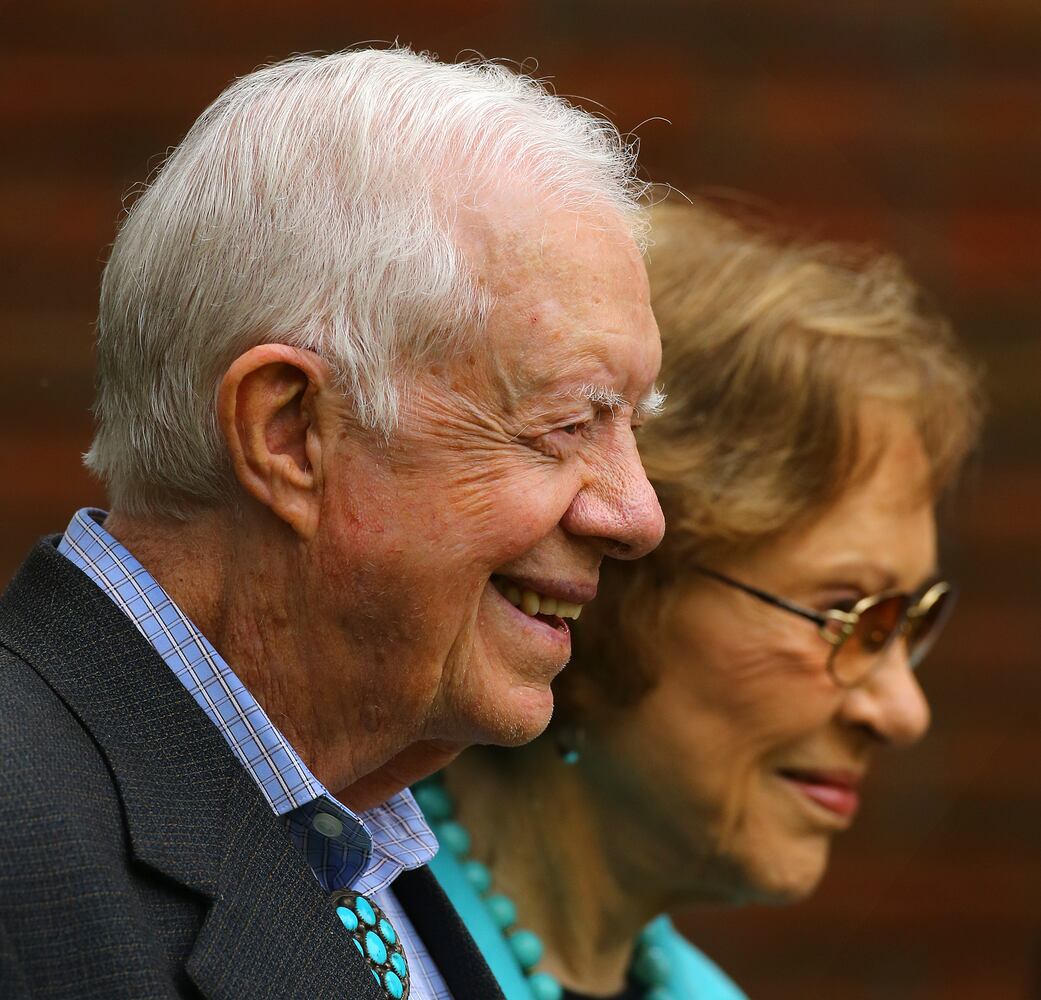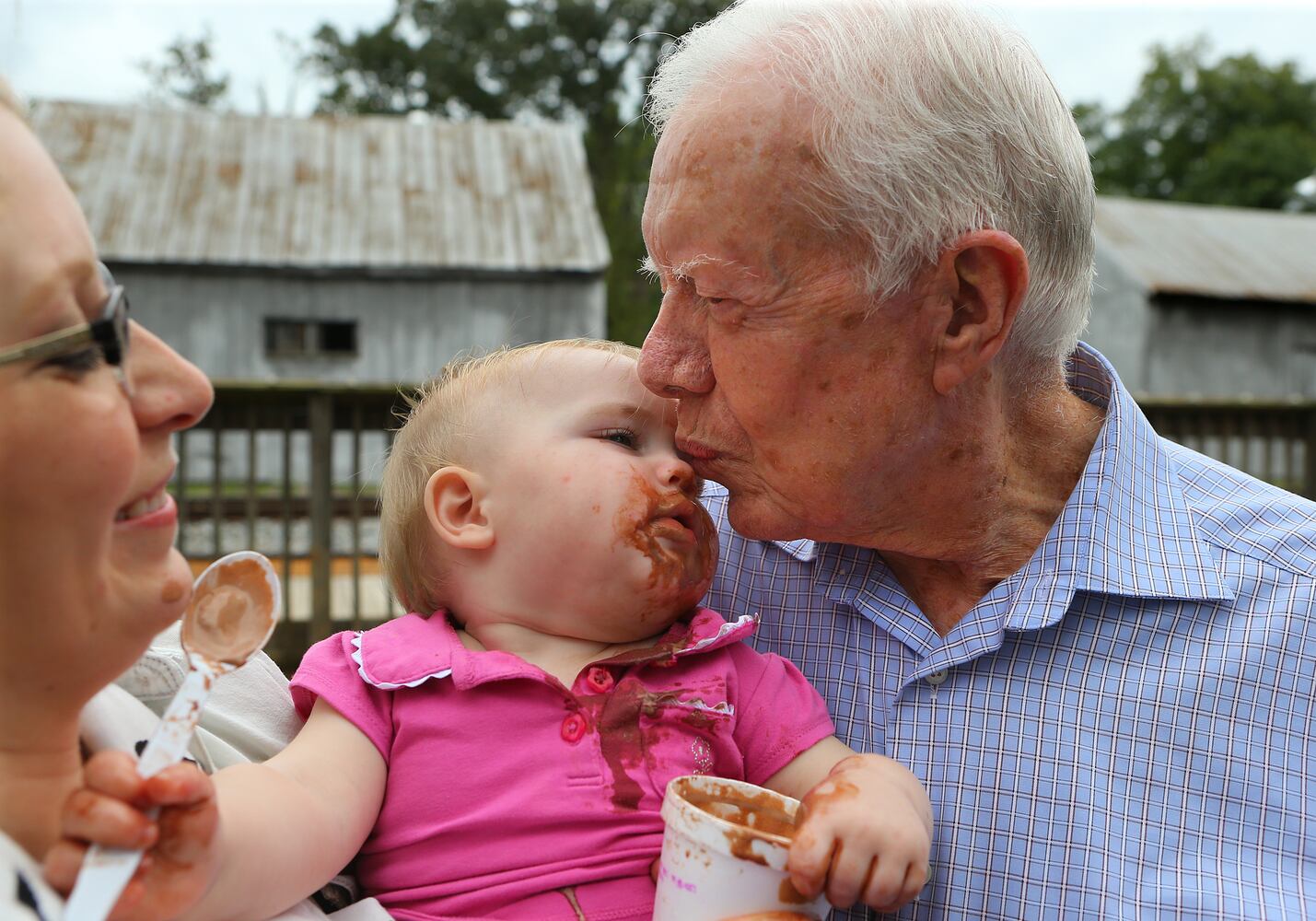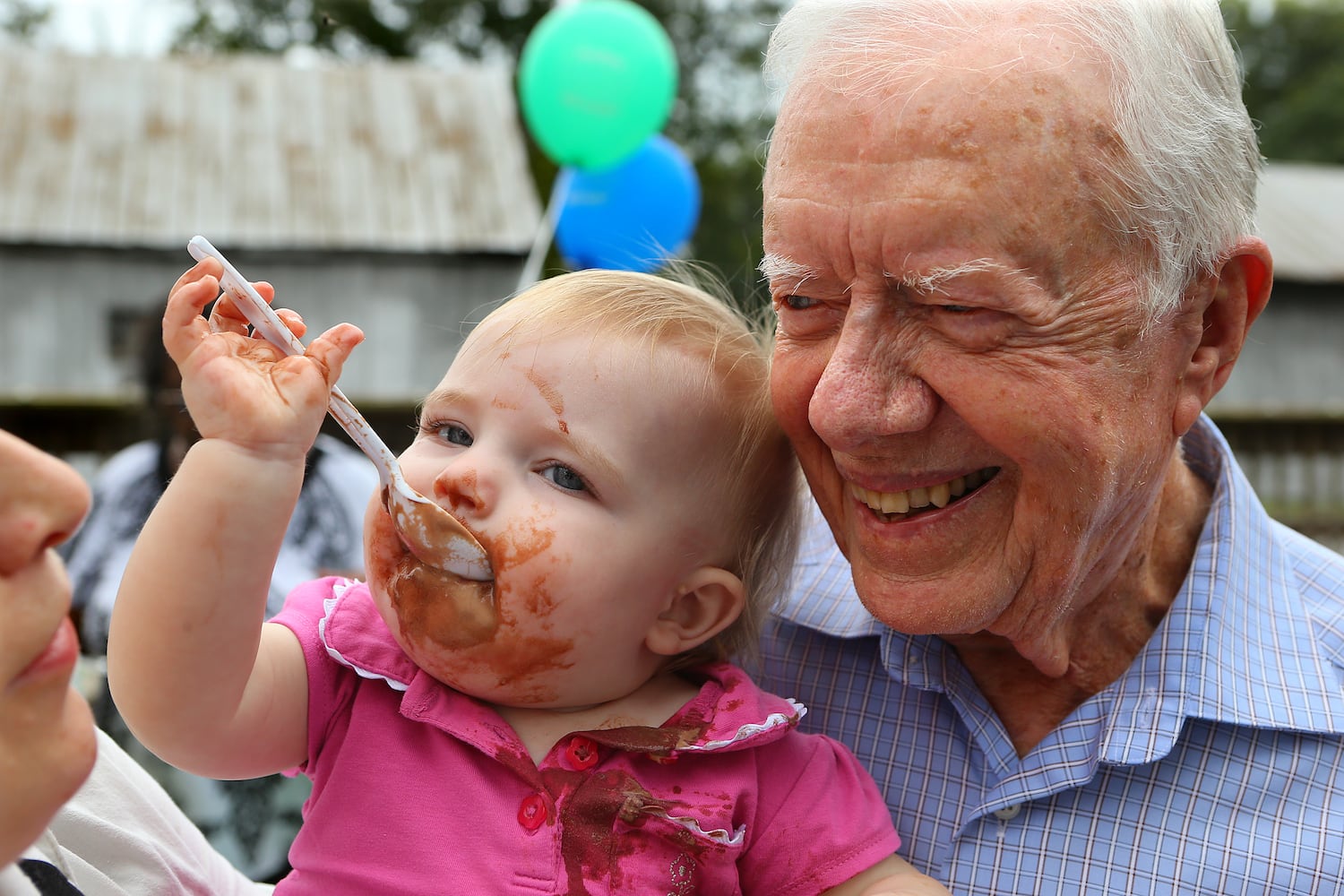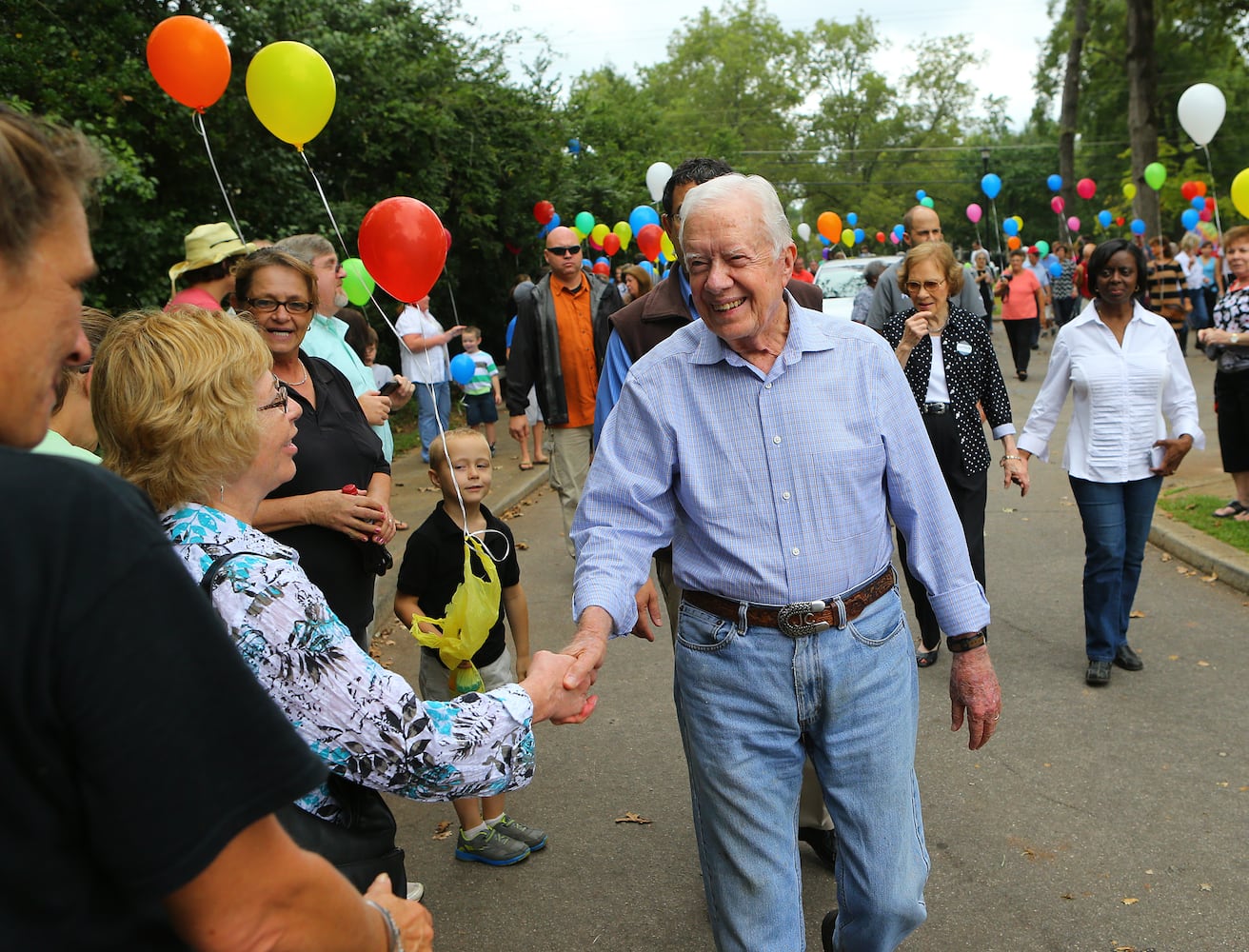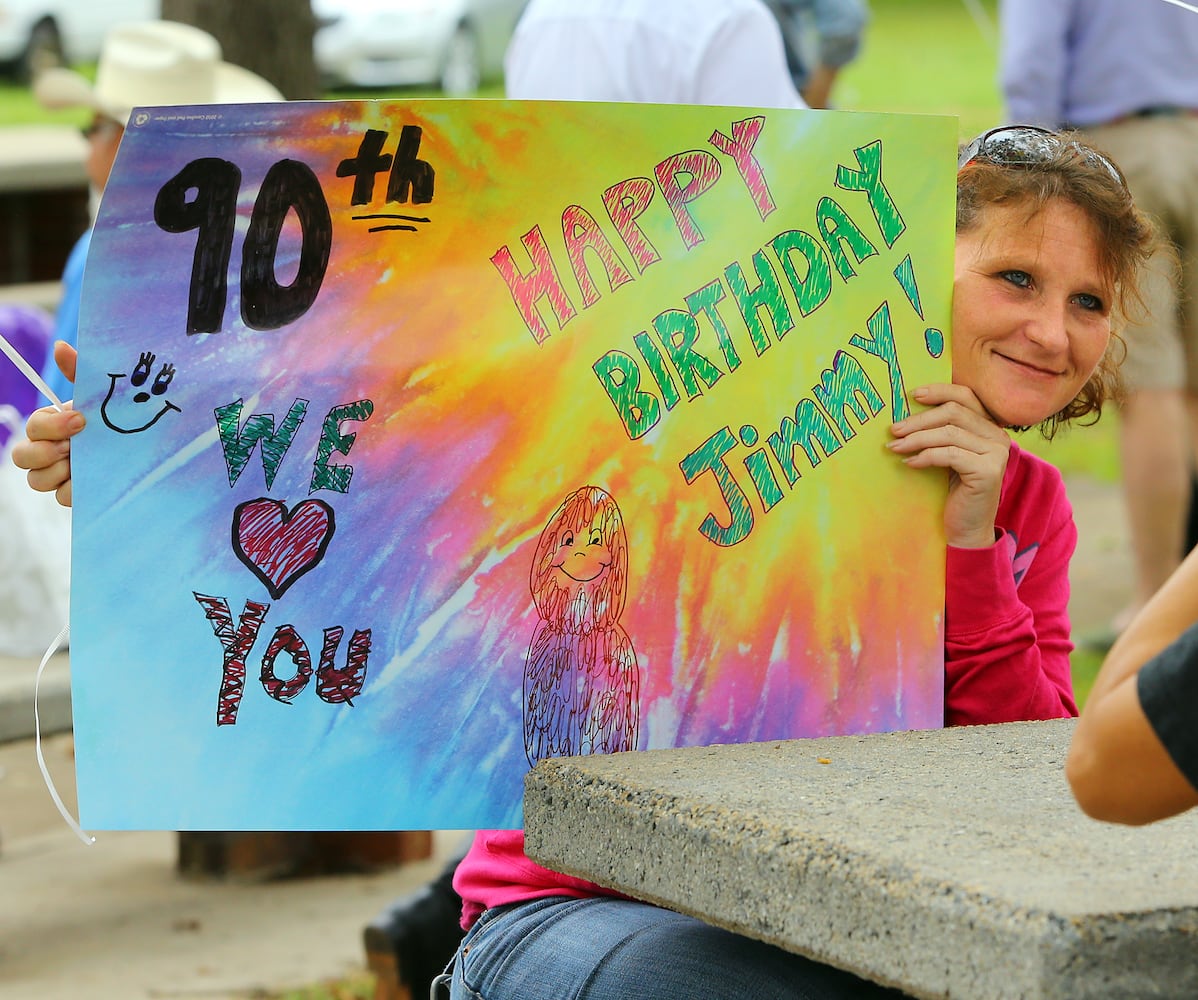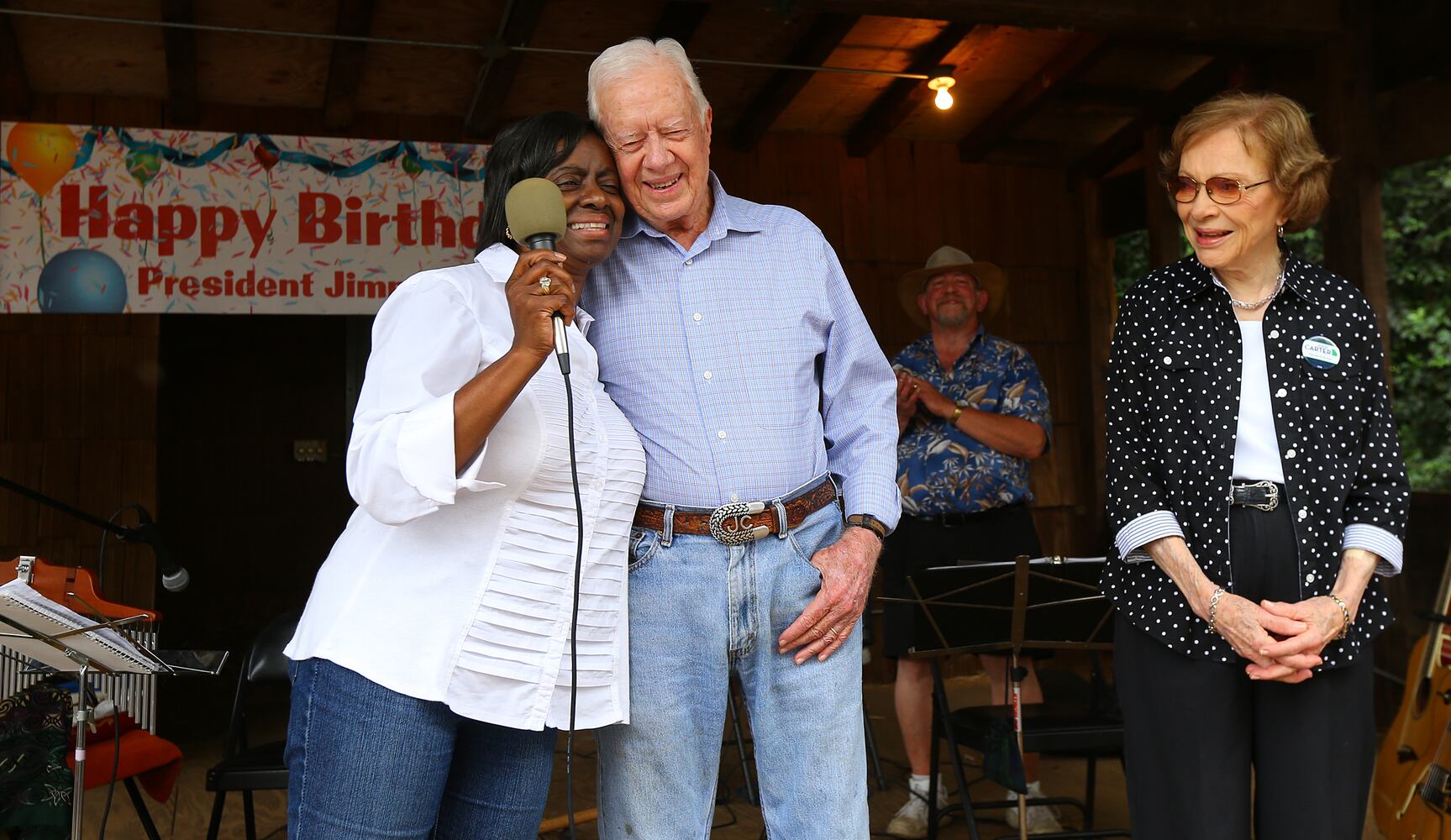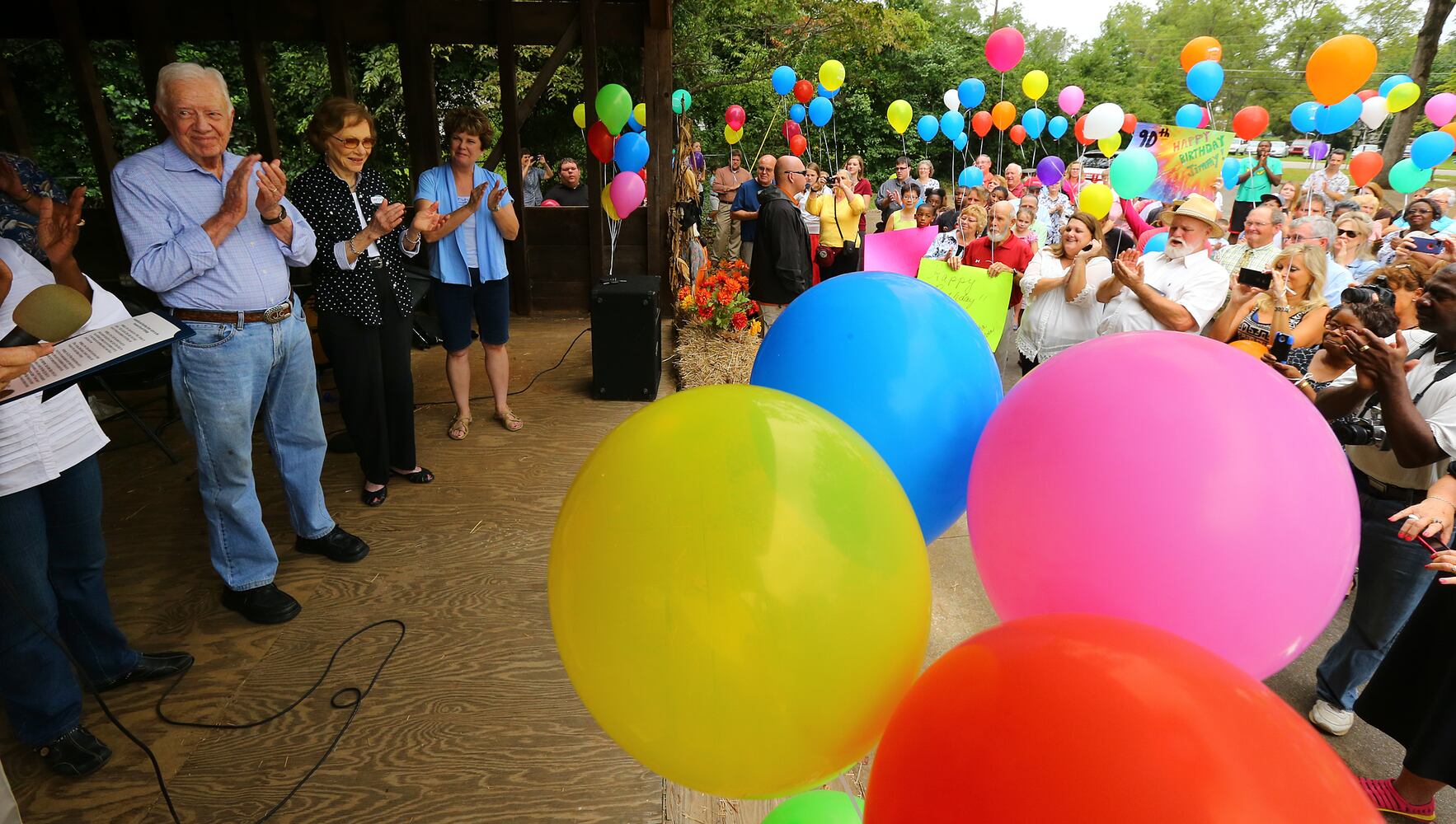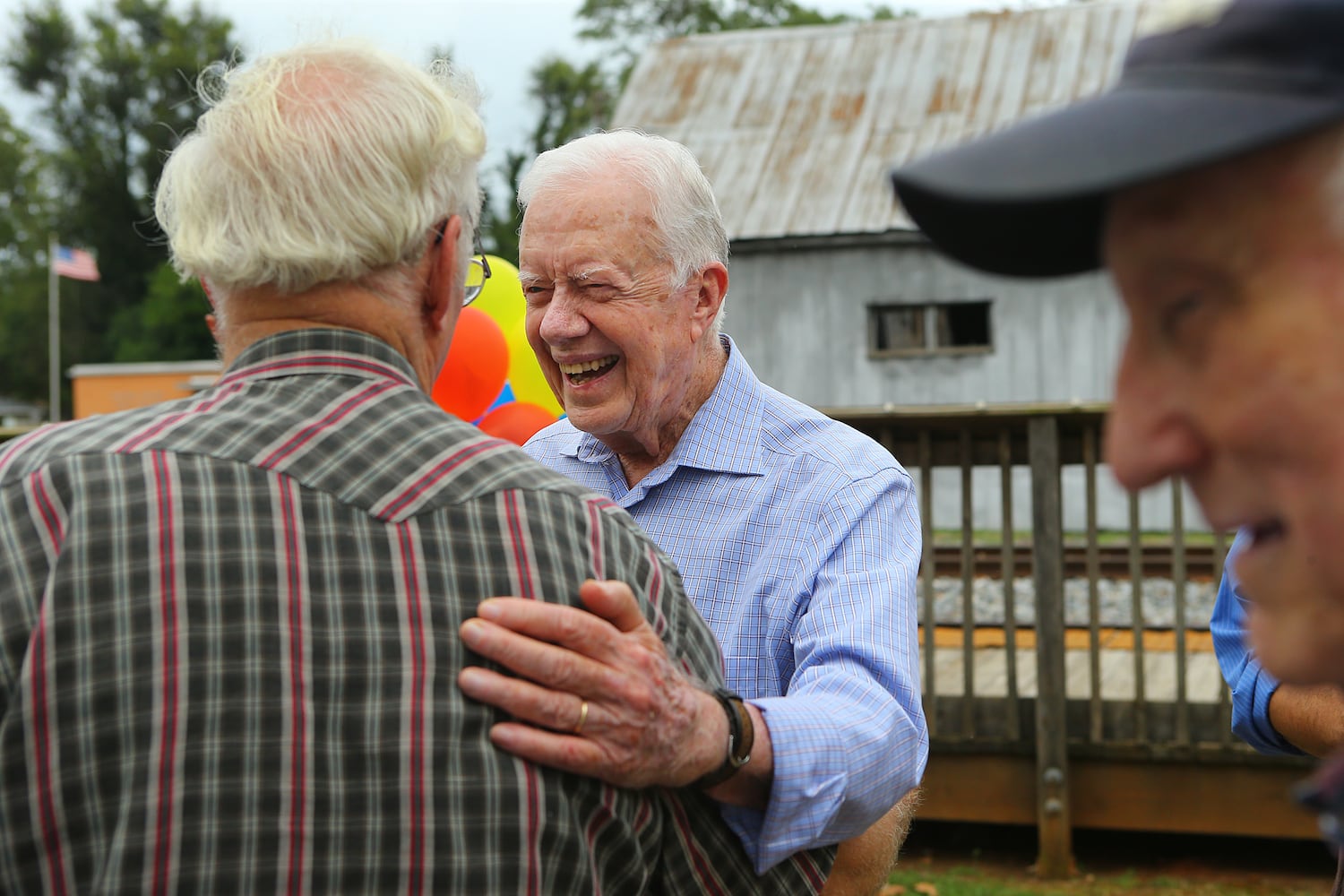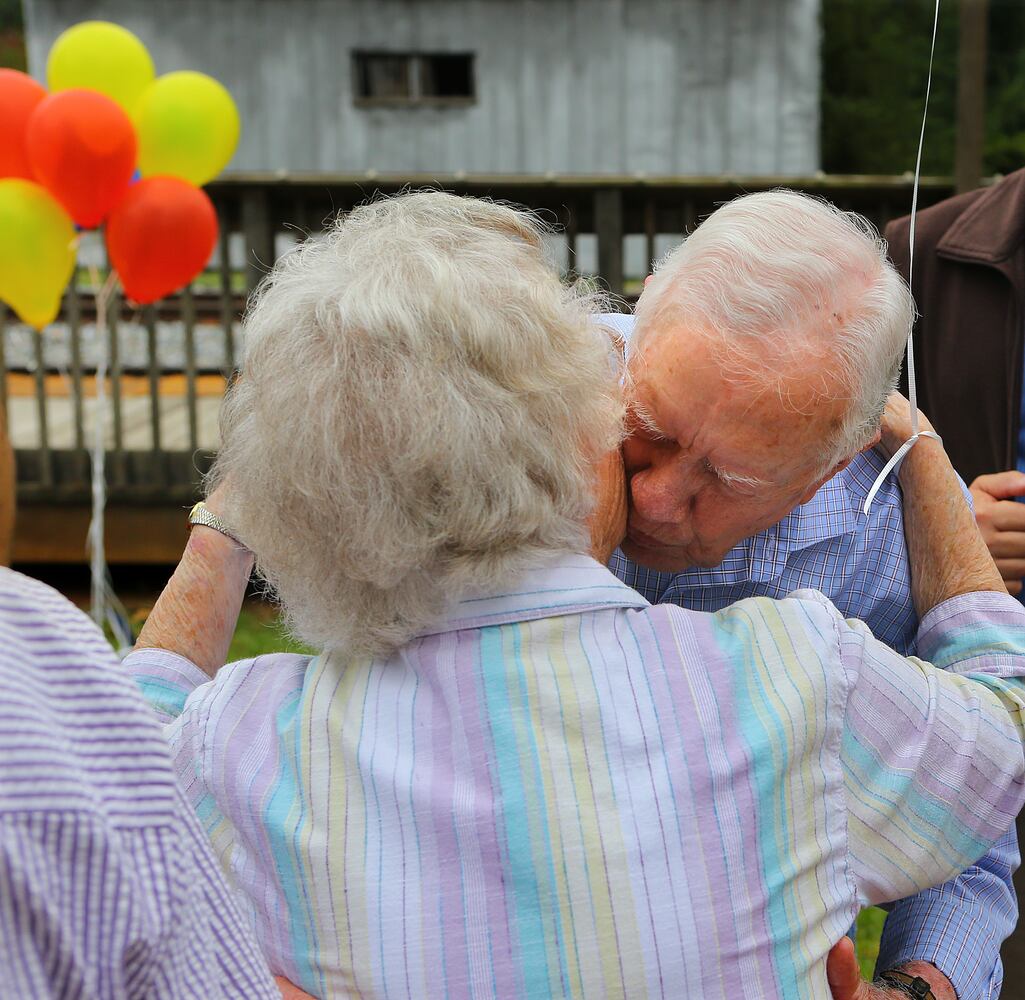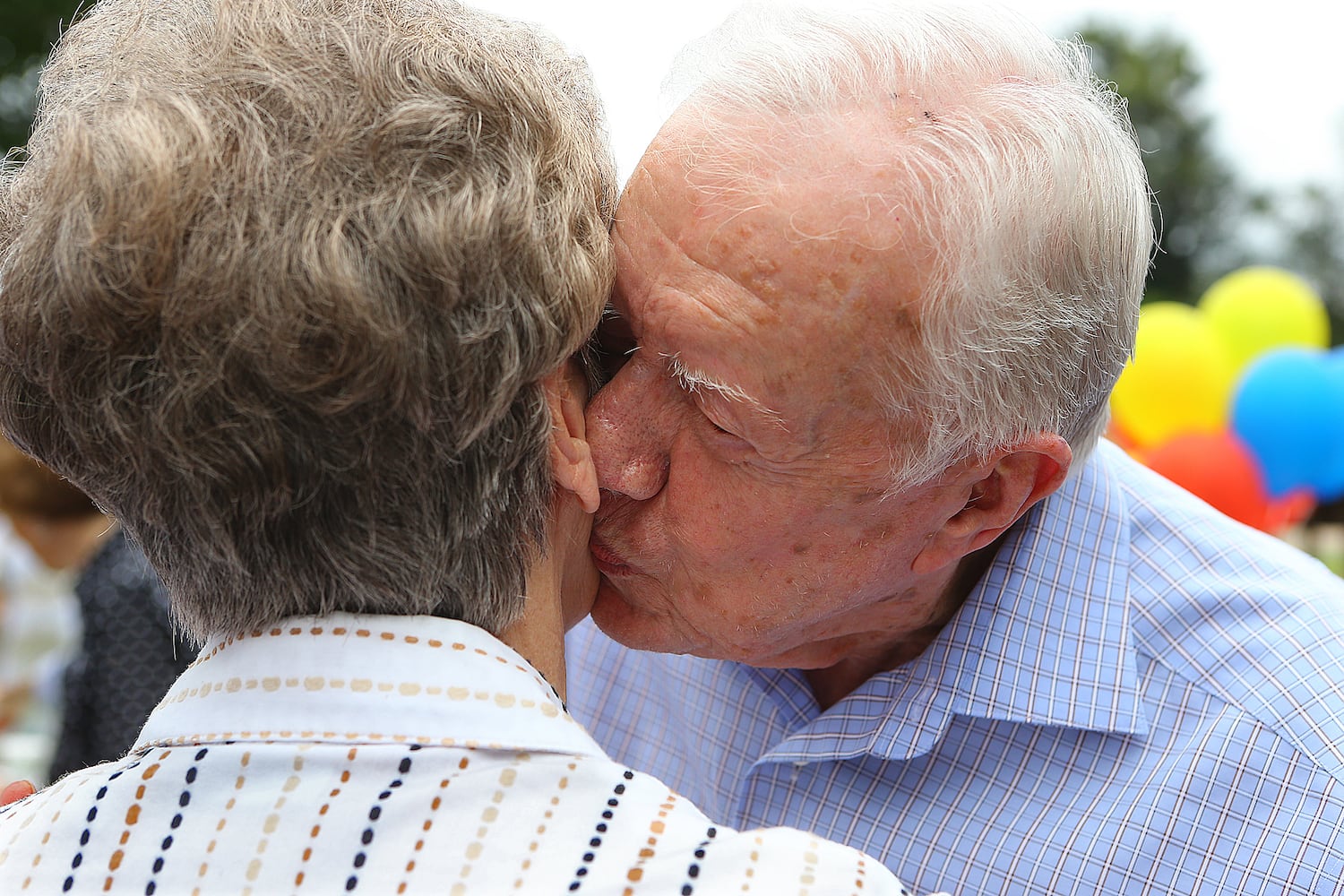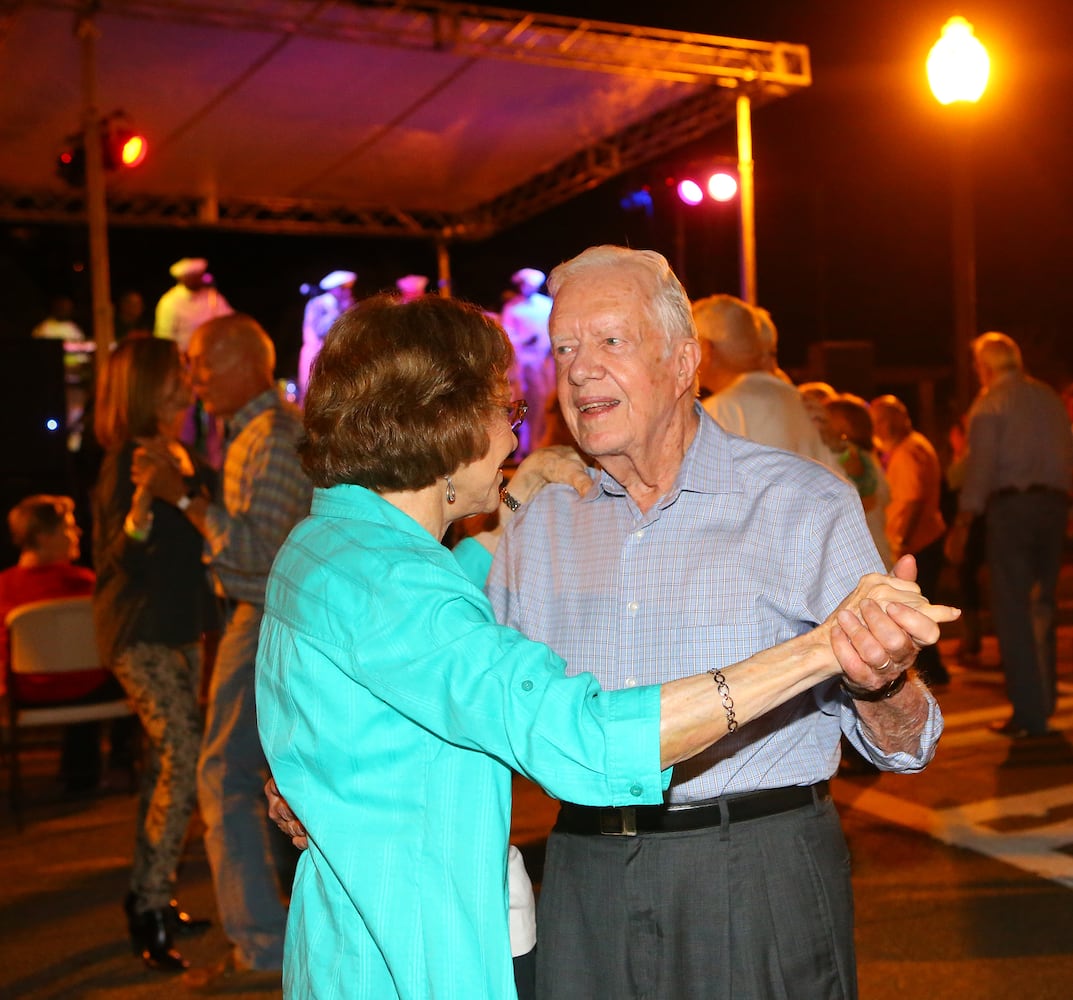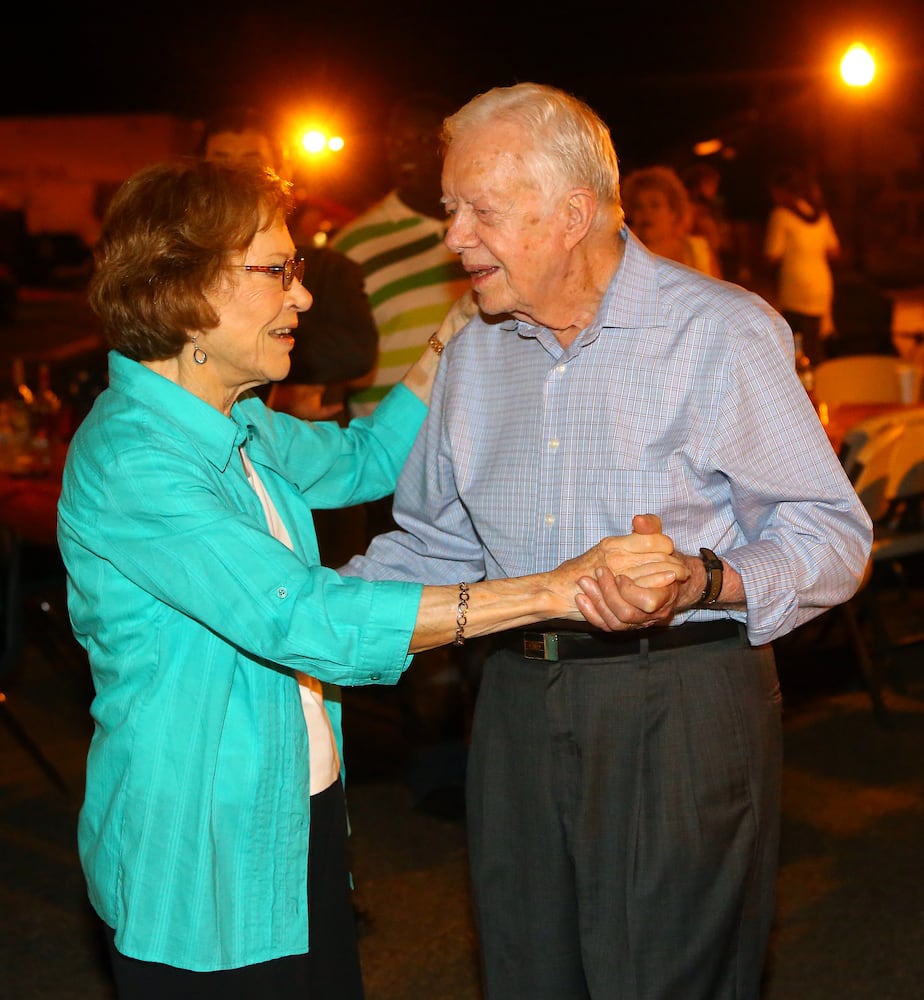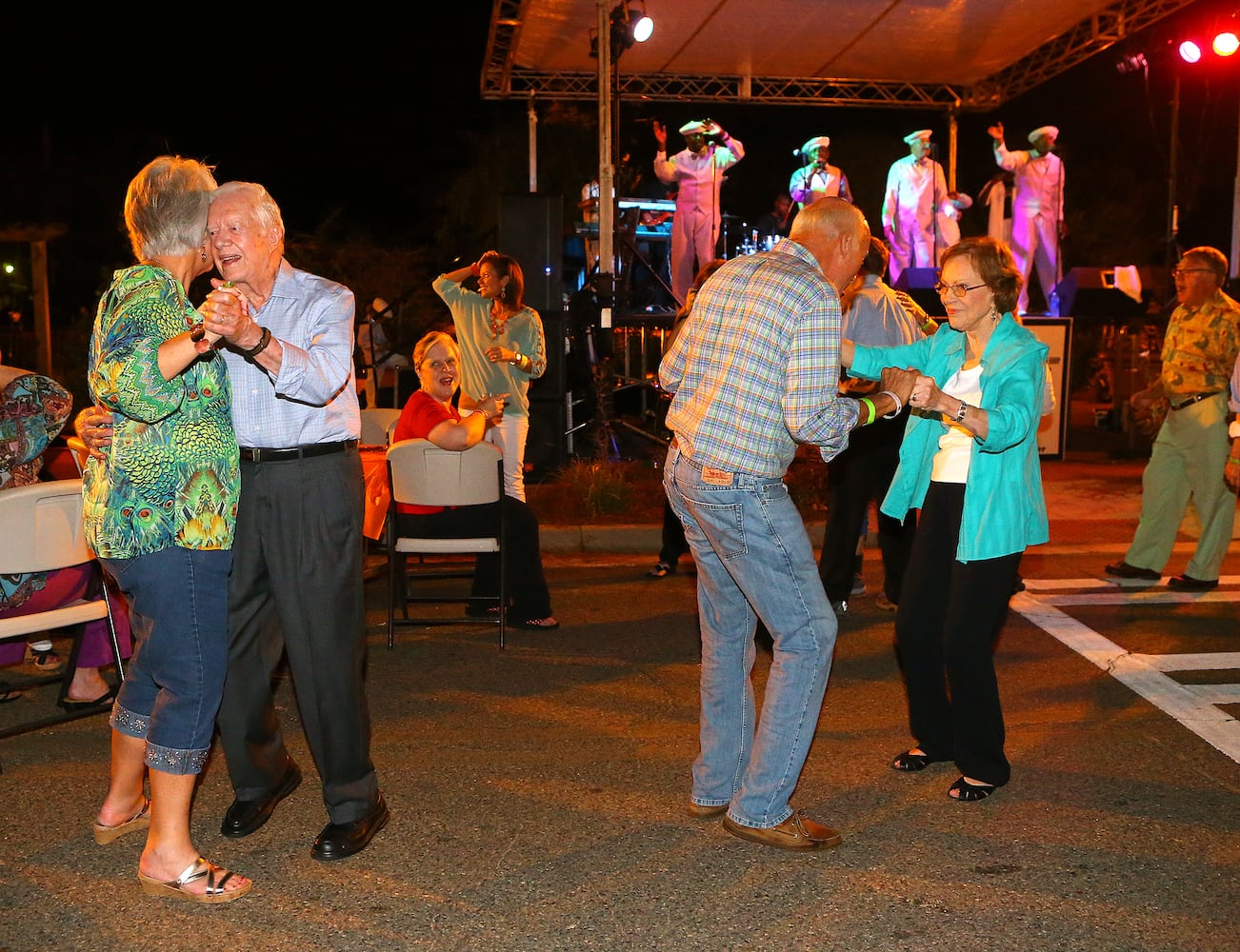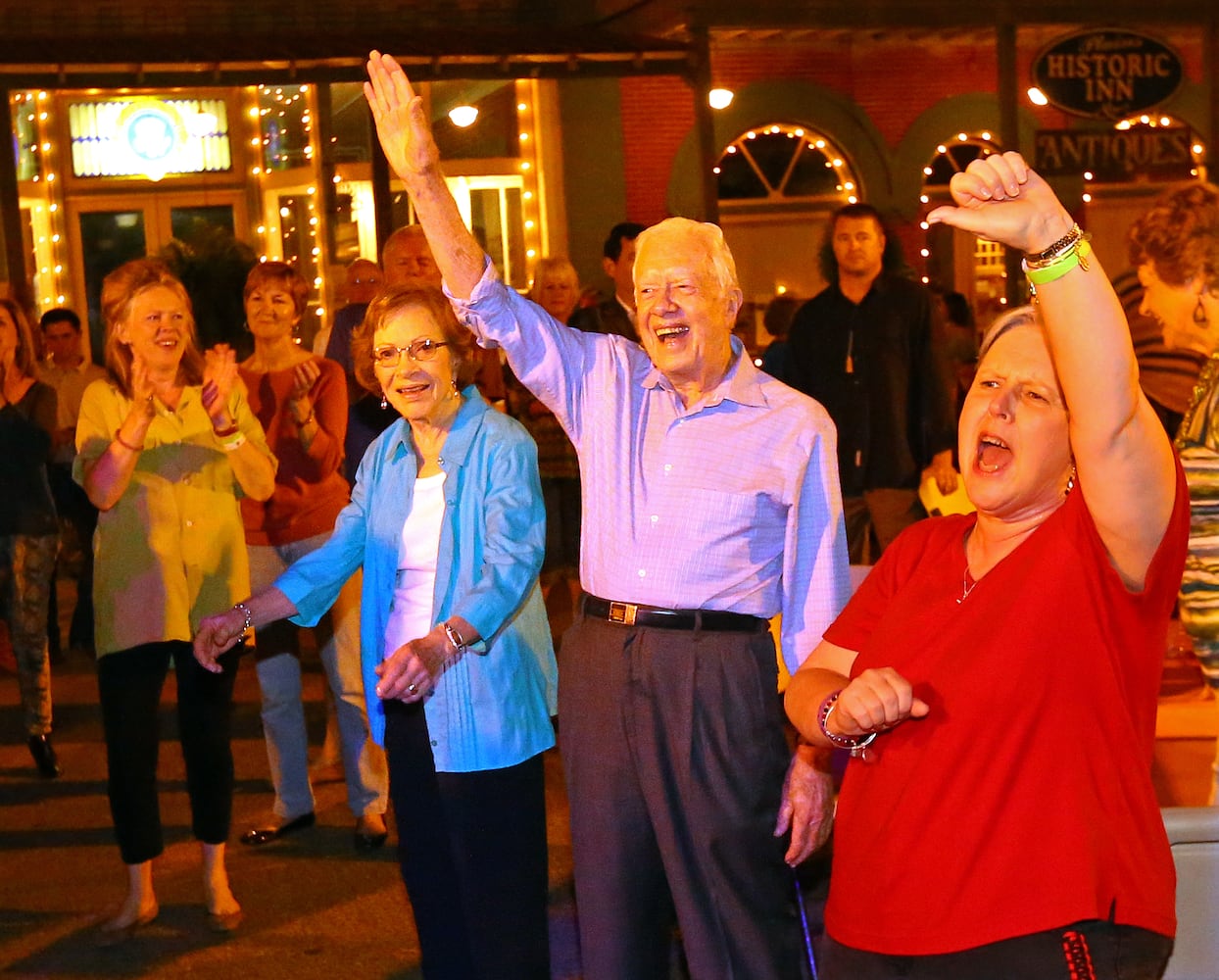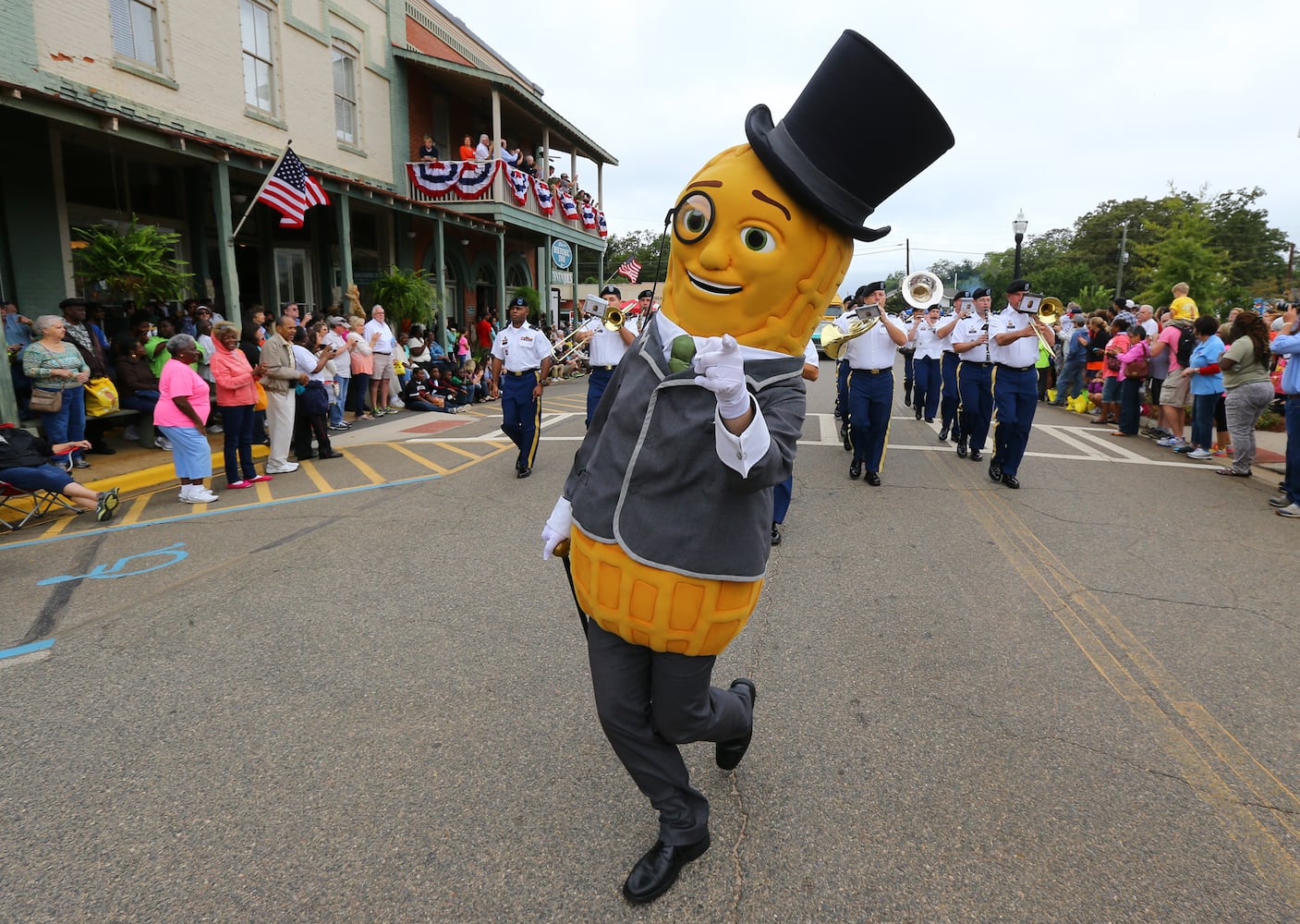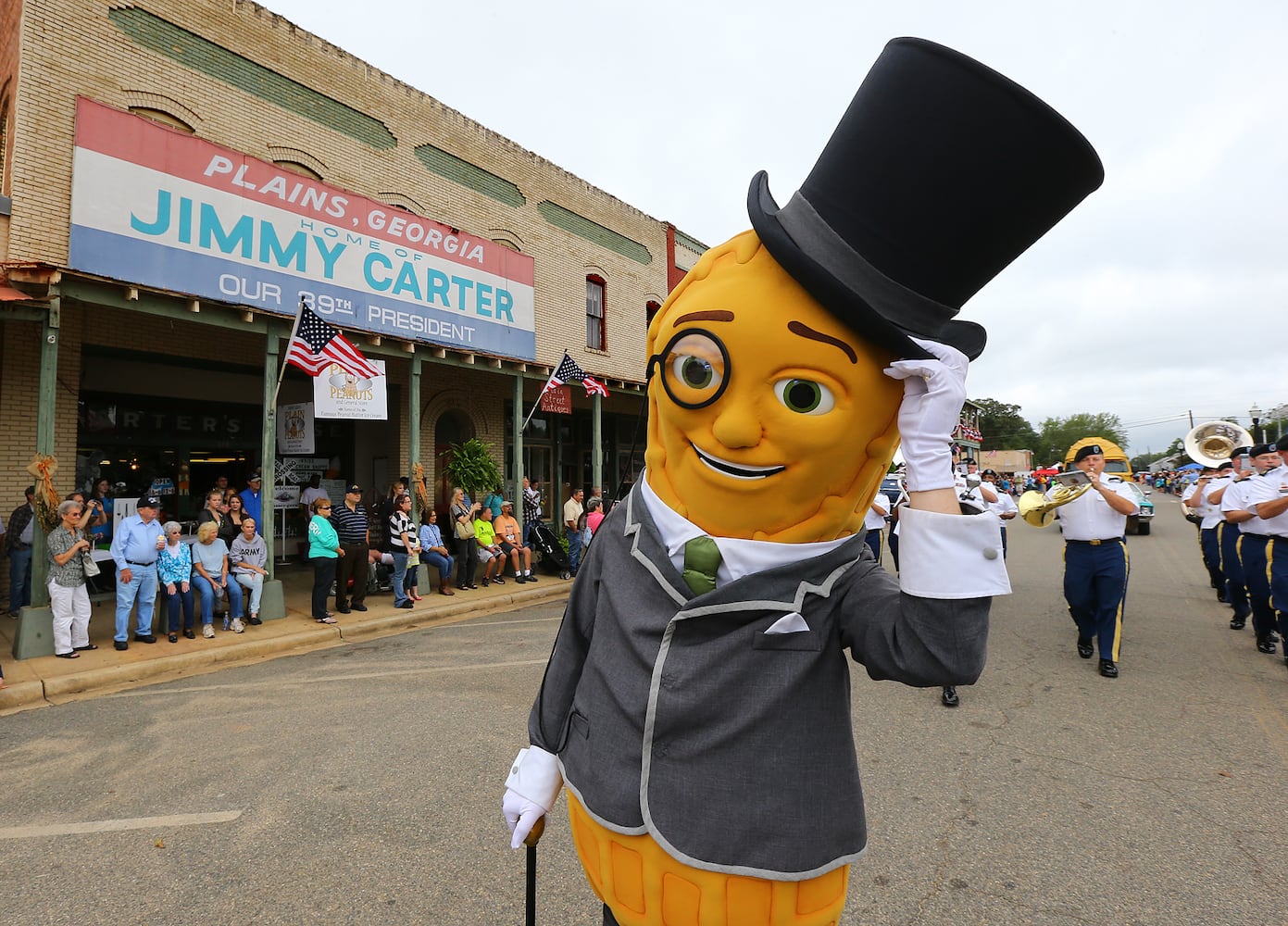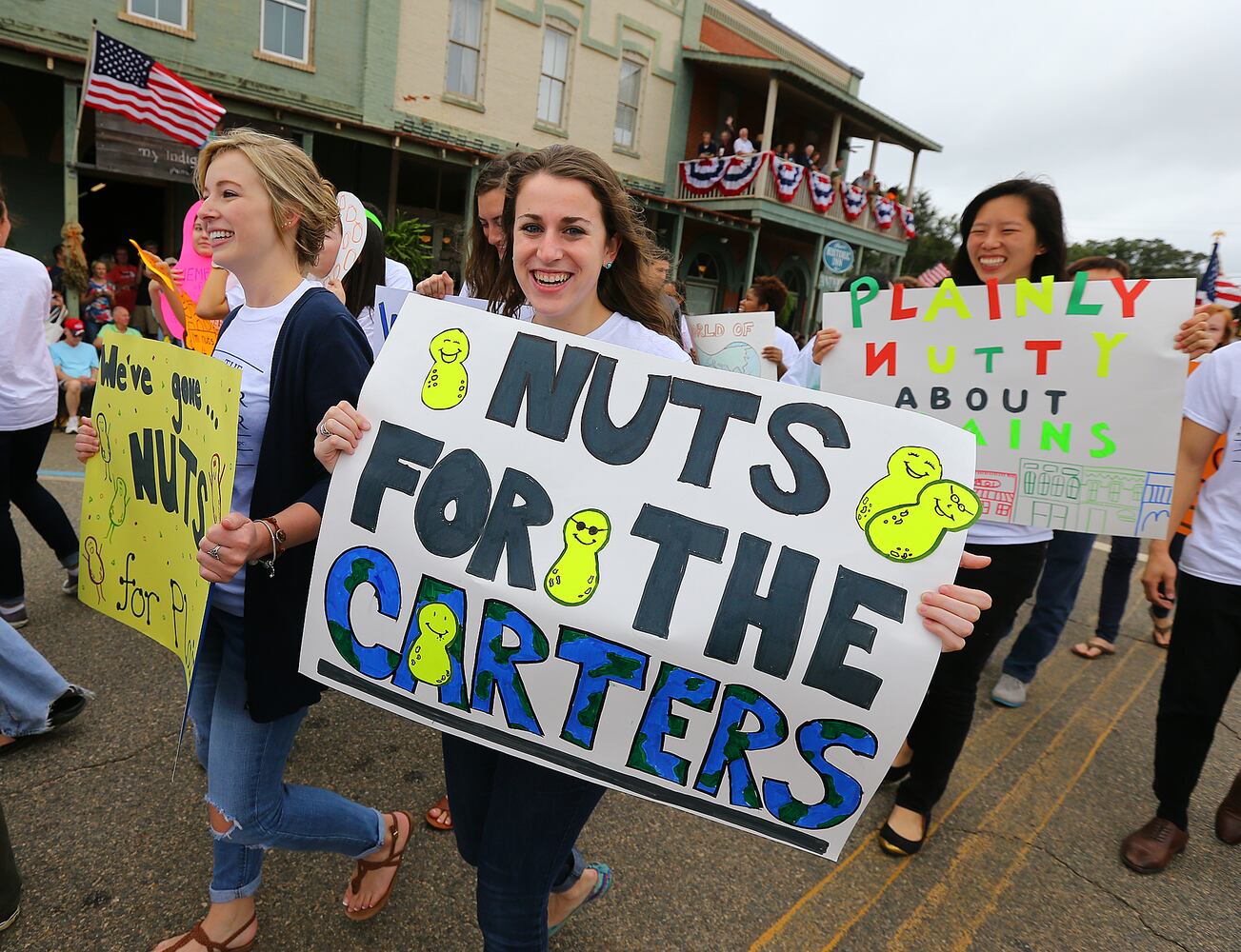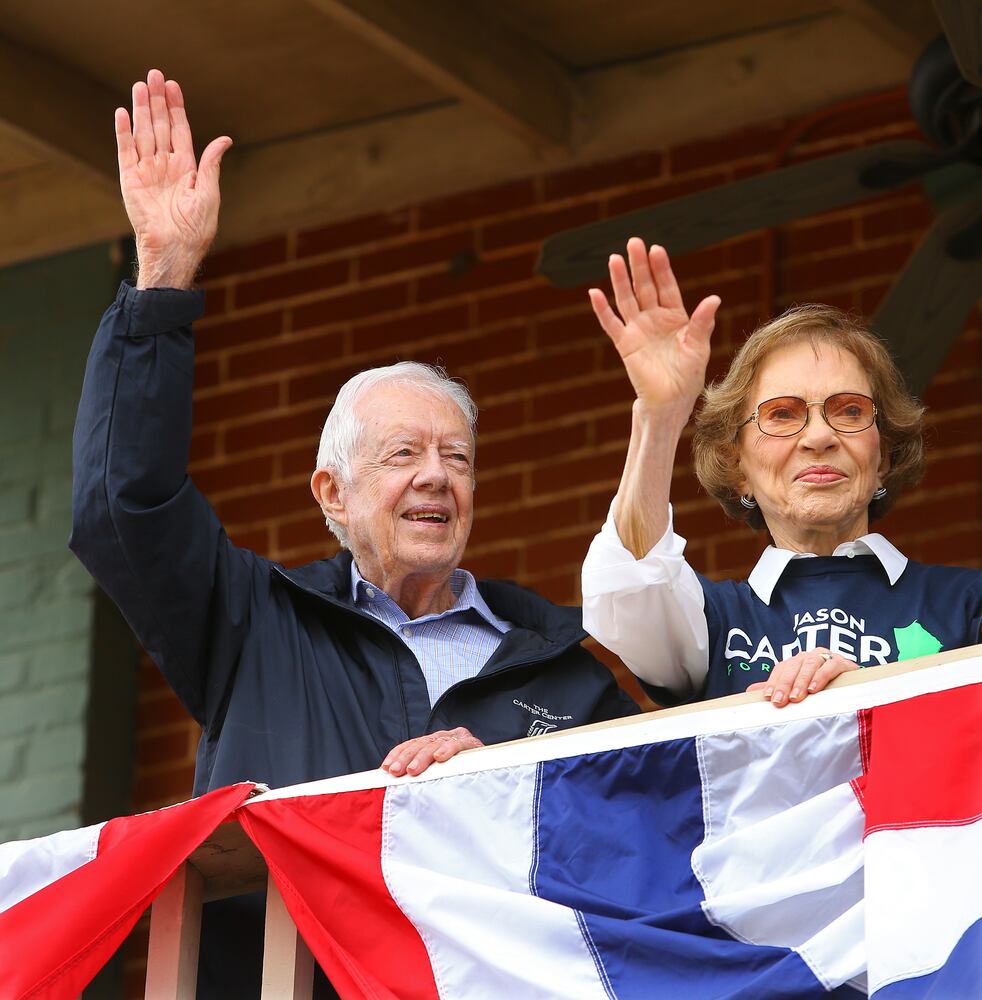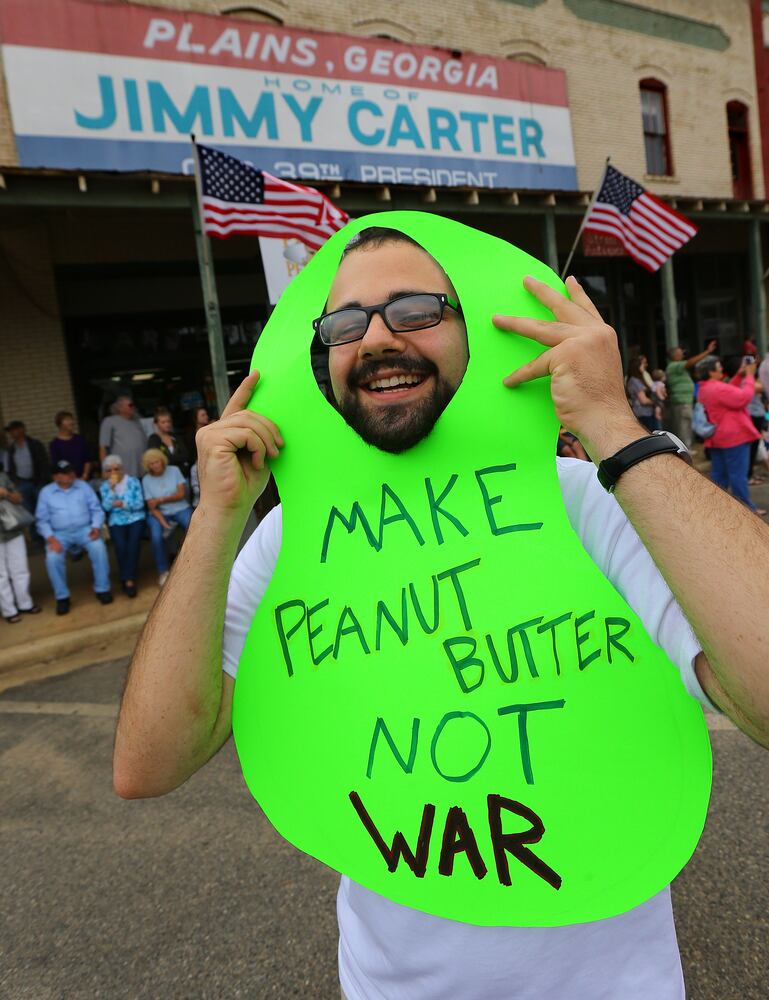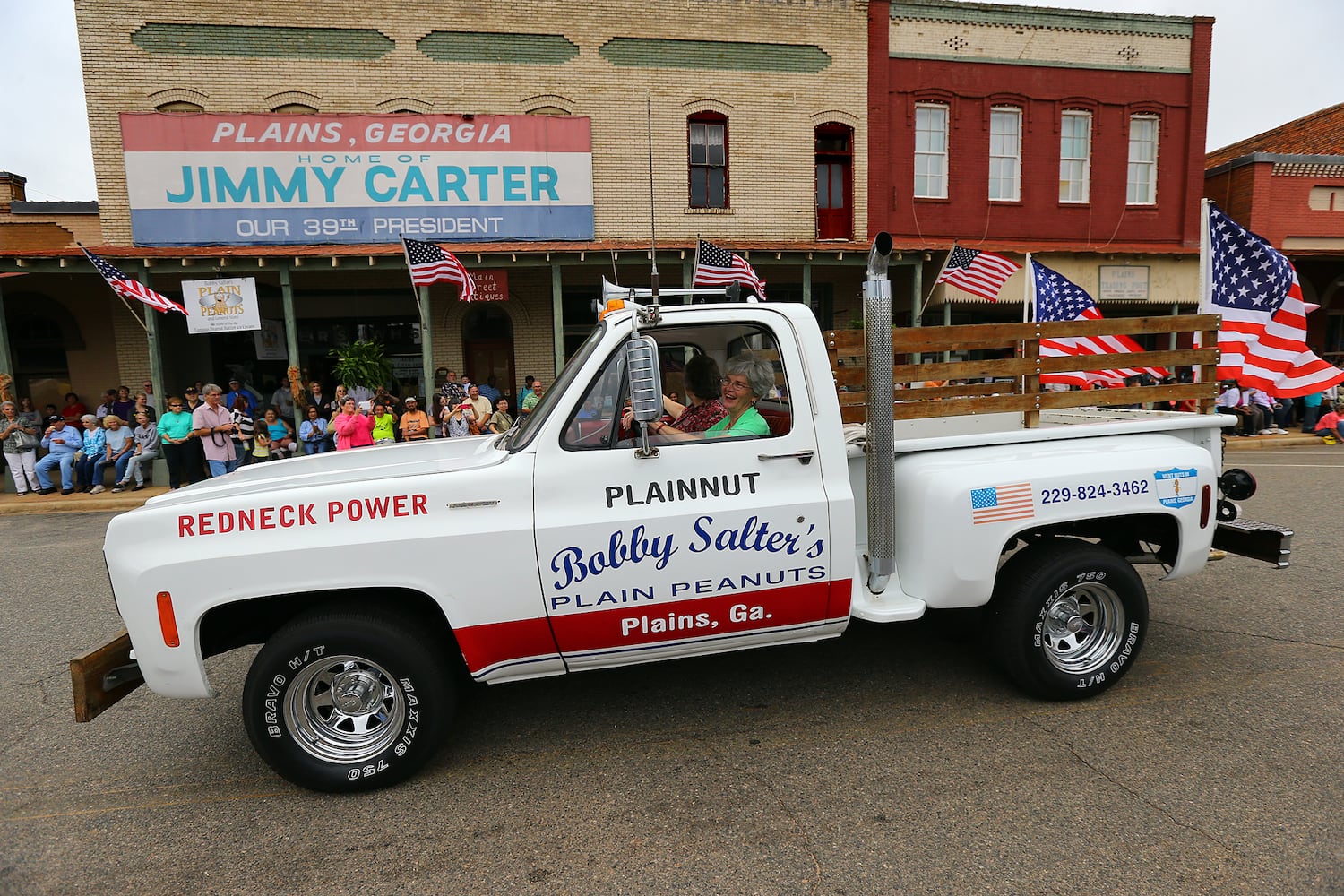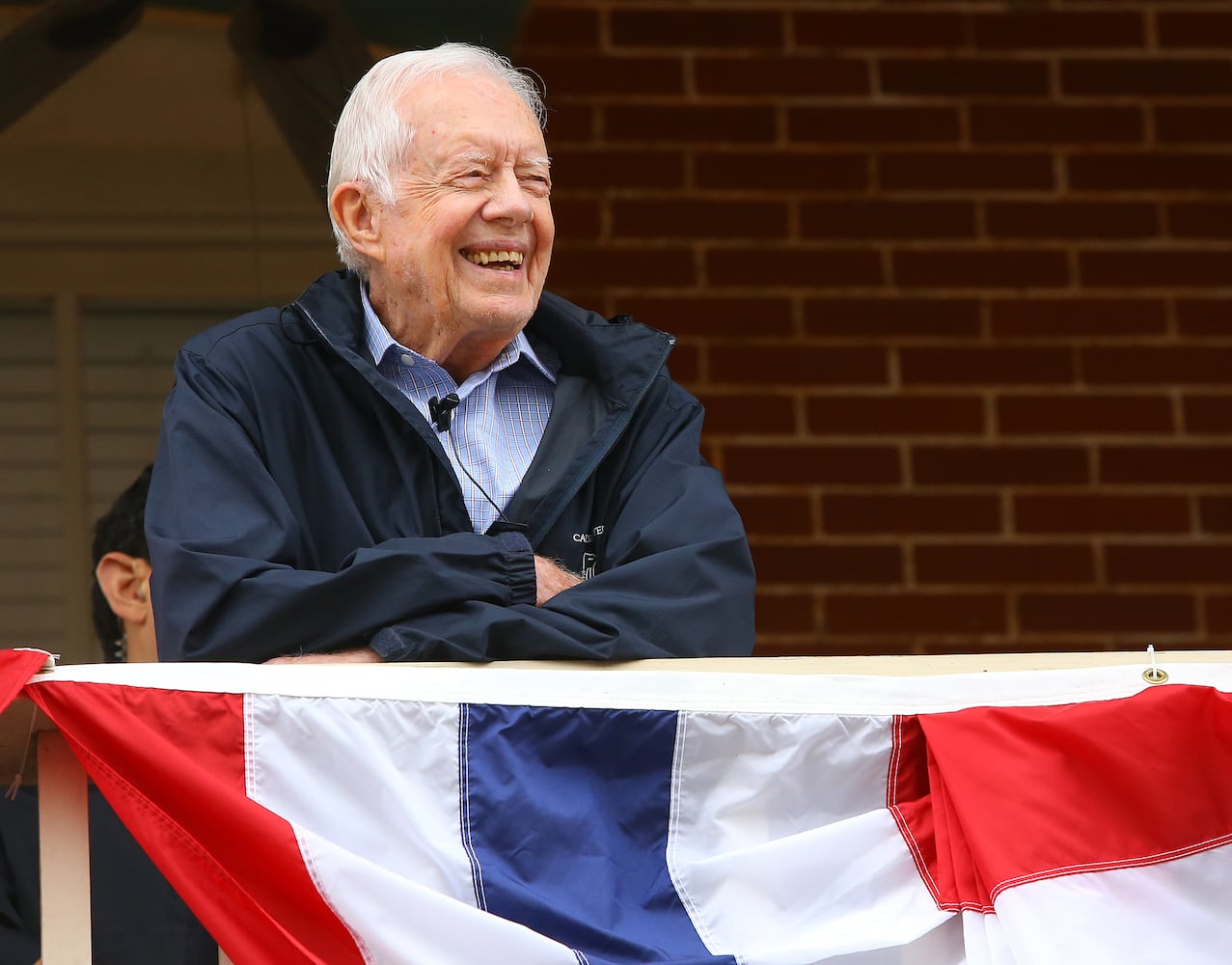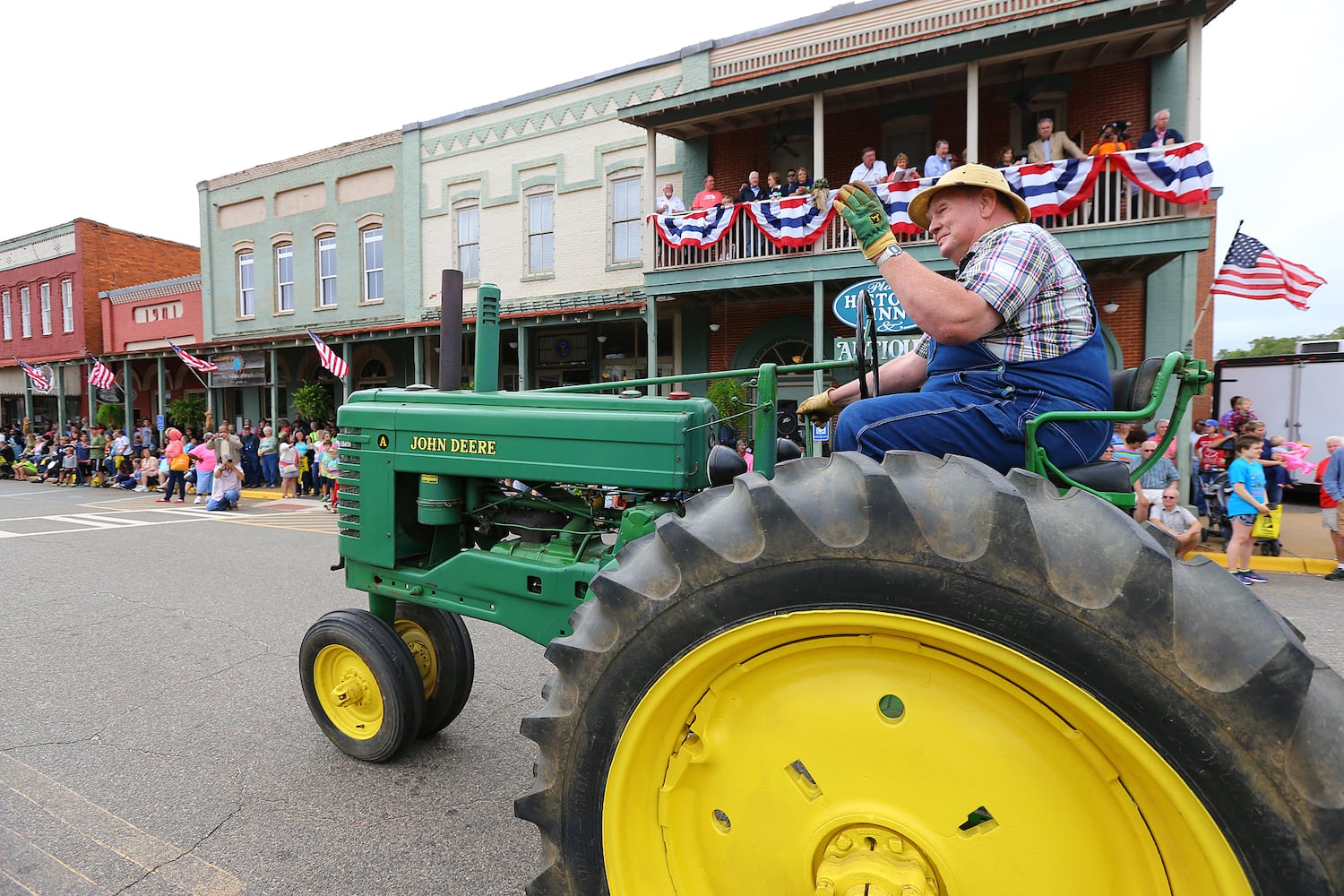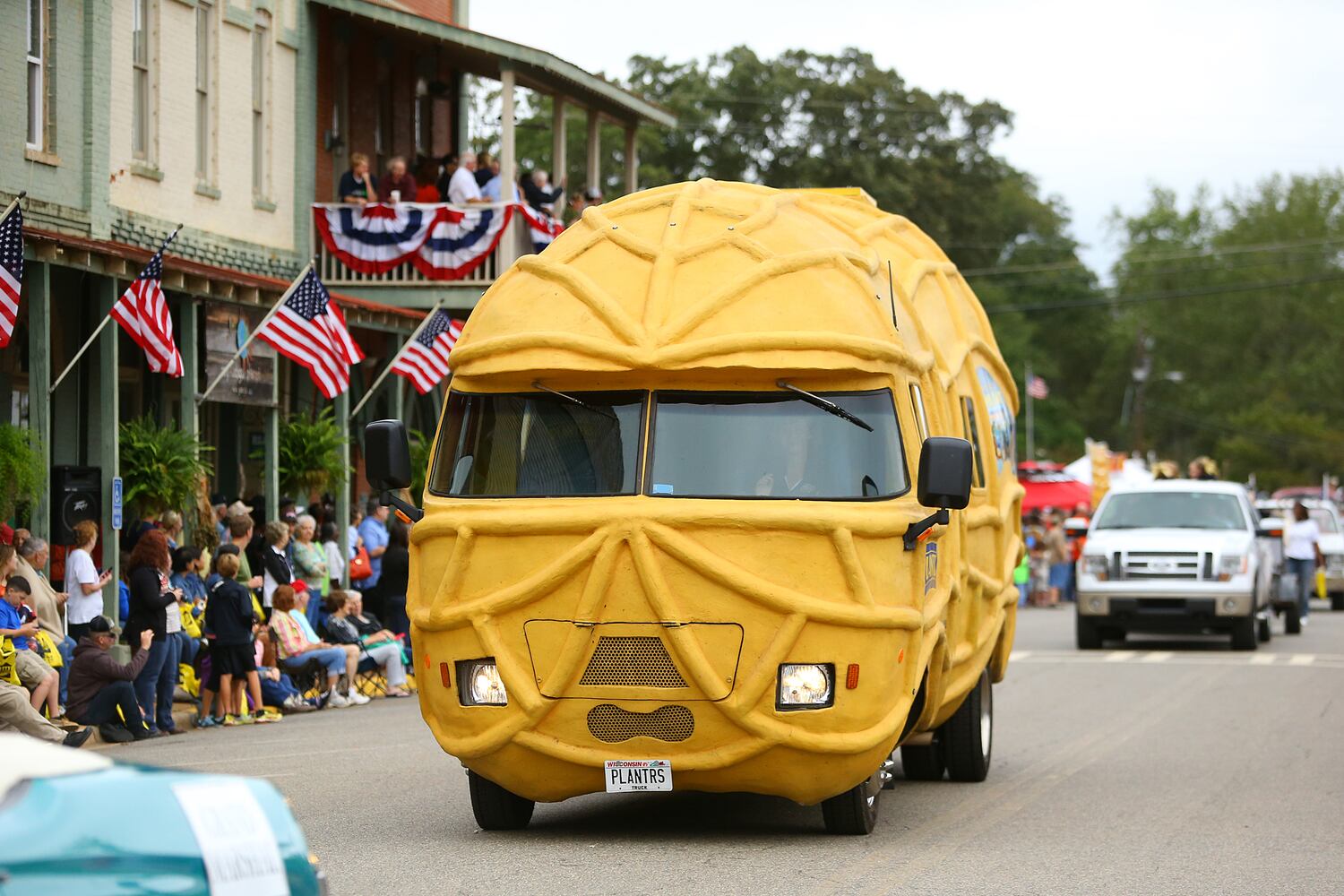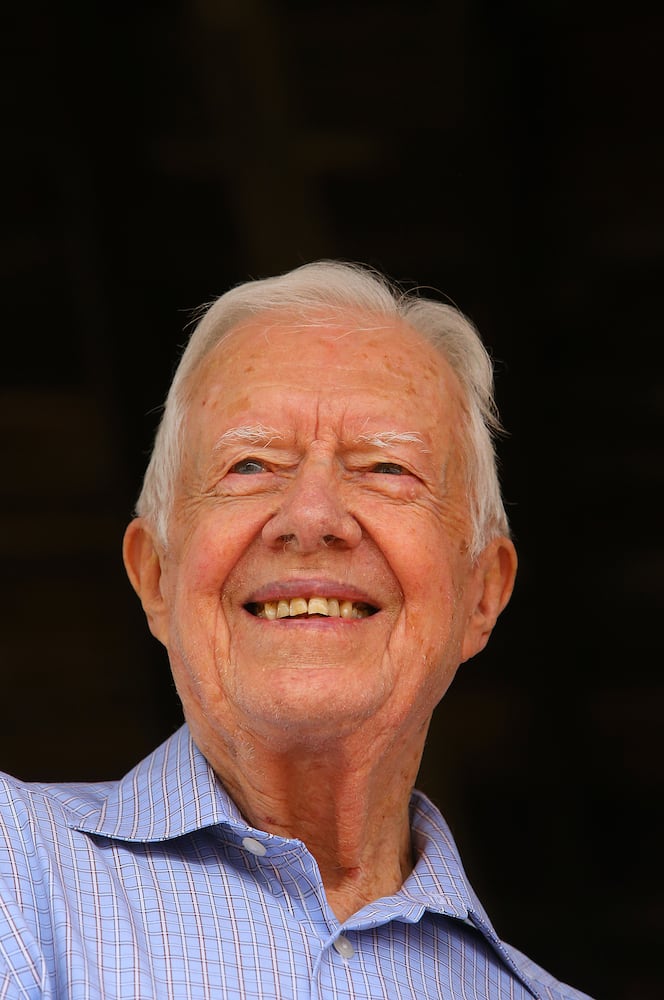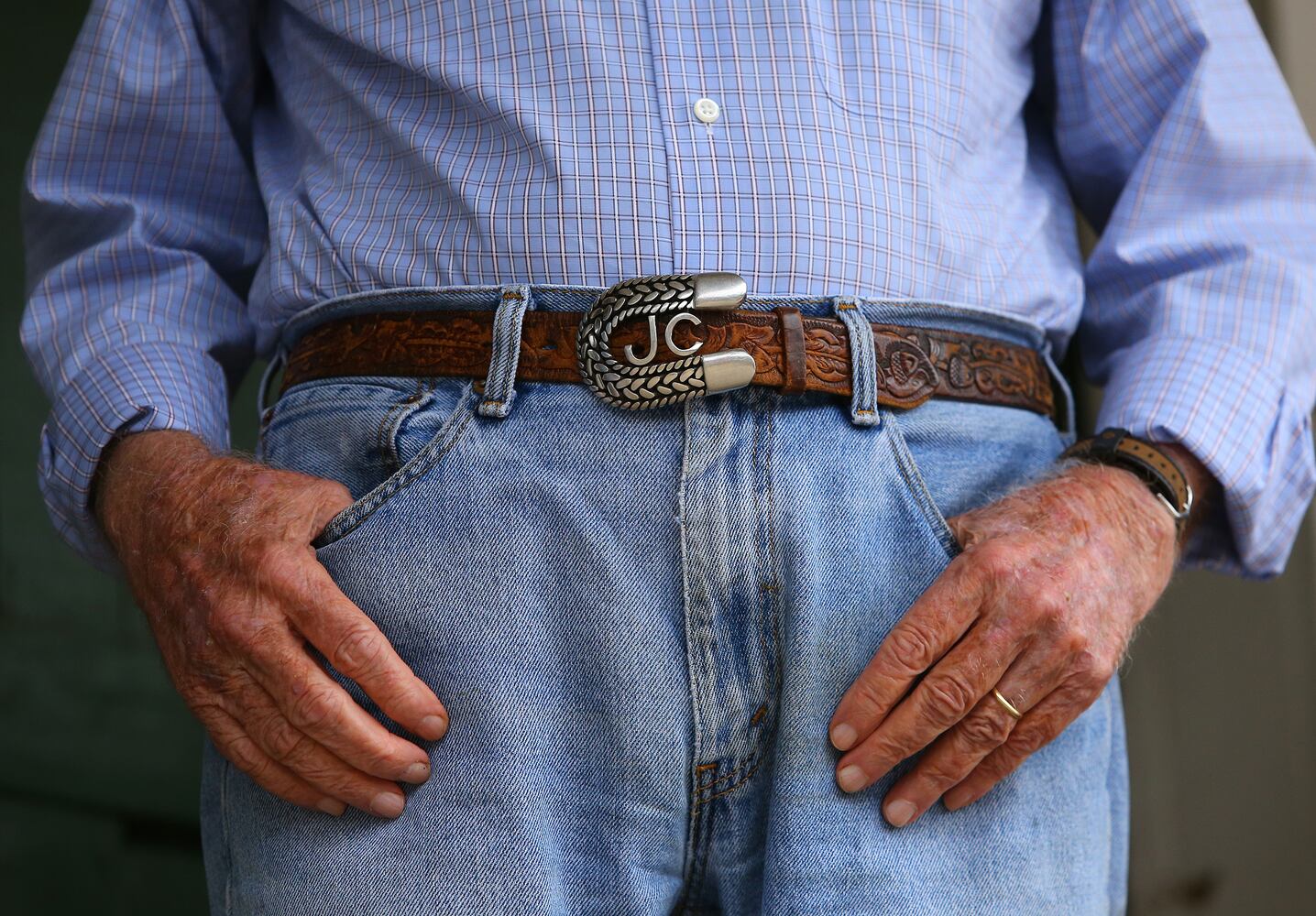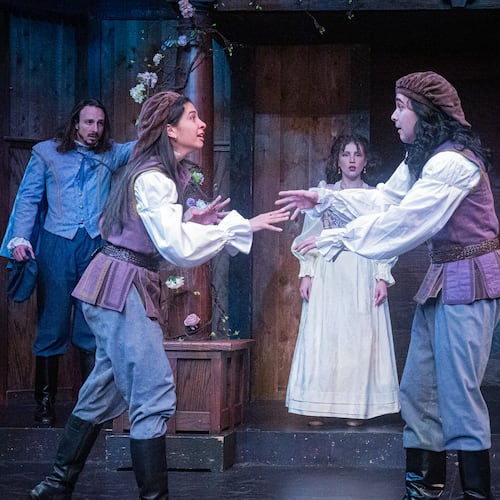Former President Jimmy Carter was one of the youngest ex-presidents ever when he left office in 1981 at 56 years old.
Since leaving the White House, Carter and wife Rosalynn have channeled their time and energy into resolving conflicts, fighting disease and defending human rights around the globe.
Carter also has carved out time to write. His new book out this week, “A Full Life: Reflections at Ninety,” is his 29th.
In this latest book, the Nobel Peace Prize winner looks back on a life that began in Plains, a rural Georgia town he always has called home, and a place where, on most Sundays, he continues to teach Sunday school (which is open to the public).
Carter writes about his public and private life, reflects on what he is most proud of — as well as what he might have done differently — and expresses regret at losing re-election.
The Atlanta Journal-Constitution recently talked by phone with Carter, who will be doing a book signing at 6 p.m. July 15 at the Carter Presidential Library & Museum. The interview has been edited for length.
Q: You were about 10 before (your family home) had running water; about 14 before your house had electricity. Despite the lack of modern day comforts and conveniences, you write about some of your fondest memories (being) from your childhood. What are some of those memories?
A: I lived in an isolated community and we were the only white family around close by. I was very close to my mother and father and I had two younger sisters who came along. And my mother was a full-time nurse for most of the time I was growing up. So I lived really among the African-American families who shared a farm with us. I was accustomed to, and acclimated to, and reconciled to, working whenever I could and whenever the fields were dry enough to go into the field. And I also had a chance to play with my friends. We went fishing in the streams nearby, we went hunting in the woods, and we worked in the fields, and we had a just good, very close-knit life.
Q: What about your life in Plains today?
A: Every time we ever had a chance to go back to Plains, we have done so. After the Navy, we moved back to Plains. When we left the Governor’s Mansion, we moved back to Plains. When I left the White House, we moved back to Plains. There was never any doubt in my mind, or Rosalynn’s mind, that our home was Plains, Georgia.
Now, we live in a house that we built in 1961 right on the edge of Plains, and it’s not very far, just a couple miles, from where I grew up as a child. Rosalynn and I were both born and raised in Plains, so we don’t have any communities or neighborhoods or relatives to compete for our affection or for our allegiance. We still own the same farms since we came home from the Navy. One of the farms has been in our family since 1833 and the other since 1904. Our farms are still devoted to production of peanuts and cotton. We still belong to the same church and we have the same neighbors we’ve always had. Plains is a small town with about 650 people now and very close-knit, and harmony exists between black and white people. I think the majority of our City Council are African-Americans and our mayor happens to be white.
Credit: D Dipasupil
Credit: D Dipasupil
Q: Why do you still make teaching Sunday school such a high priority?
A: I have been teaching since I was a teenager. … It’s always been a part of my life. And now that I am a former president teaching Sunday school, it attracts a lot of business coming here. You know, a politician teaching the Bible is sort of a strange thing for people to see. … We usually have between 10 and 15 countries represented at our church (at each service). It’s a joy for me.
One time, I decided, about two years ago, I would not teach more than twice a month and the people that ran the inn complained, because visitors didn’t show up, and the restaurant was kind of empty when I didn’t teach. So it is kind of a matter of a local obligation, I guess. But, I also enjoy teaching.
And I don’t think there is any doubt that there are a lot of people affected by my lessons, not necessarily because of the quality of them, but because of the fact I try. I have a lot of people, when they take photographs of me at the end of the service, they tell me they have never been to church before or it’s been 20 years since going to church.
Q: What are you most proud of as president?
A: I kept our country at peace. I protected human rights. Our country became a champion of human rights while I was in office. We brought peace to other people as well. … I was also able to protect our environment. … And I told the truth.
Q: What is something we can do as Americans to make our country, make this world, a better, peaceful, kinder place?
A: Well, you know we are not a very peaceful nation. We are probably the most warlike nation in the world. We have been in combat with about 30 countries since the second World War, as a matter of fact. But, I think that my life is a demonstration that even if you come from a tiny little place and grow up in a community that is small, that you still don’t have to have any limit on what you achieve in life — if you have a good background, get a good education, and are fortunate and ambitious. I have had a series of different careers in my life, as I outline in the book. … And now, I would say, is our best life since our White House (life). My wife and I have capitalized on our influence and our knowledge of the world. We arrived from being the first family of a great country. And, so, we try to live a very unpredictable, challenging, exciting and gratifying life.
Q: What are you most proud of since you left the presidency?
A: That has been the best part of our existence. I am completely free to go anywhere I wish in the world. I meet with whom I choose. I say what I really believe. … I have been eager to address problems in the world other people don’t want to deal with that are most difficult. We negotiate peace agreements, manage elections. … The main thing we do that is beneficial is to help hundreds of millions of people all over the world to deal with diseases that no longer exist in the rich or developed world. So, I think that is the most gratifying thing and is what makes us most proud.
Q: What do you do to stay healthy and active?
A: My wife is a very good cook. And she is very committed to a proper diet, so whether I want to or not, I eat the right things: the right balance of protein and carbohydrates. And we get a lot of exercise. We have a swimming pool nearby and we have a tennis court right behind our house. We ride bicycles and we walk a lot on our farms. So we are pretty active outdoors. … We like to fish and we go on some interesting fishing trips. Last year, we went to Russia and the year before that we went to Mongolia. And this next year we are going to Argentina.
Q: What do you hope readers learn from your latest book?
A: Well, I try to point out in the book the different phases in my life and the lessons that I have learned. … When I have a disappointment or a failure or a setback, I try to learn from that and, if possible, when I have a failure, I try to set another goal in life that’s more ambitious than perhaps the one I failed at. And I also describe how I got along with presidents who came before and after me in the White House, and some of things I did as president — there were successes permanently resolved, and I point out some of the things that I tried and I didn’t completely succeed, and how they still are challenges for our country. But I also hoped to point out that our country is a great nation and, although we have setbacks and disappointments and failures, and sometimes even embarrassments, inherently we have a great country because of the people who have come here.
About the Author
Keep Reading
The Latest
Featured
